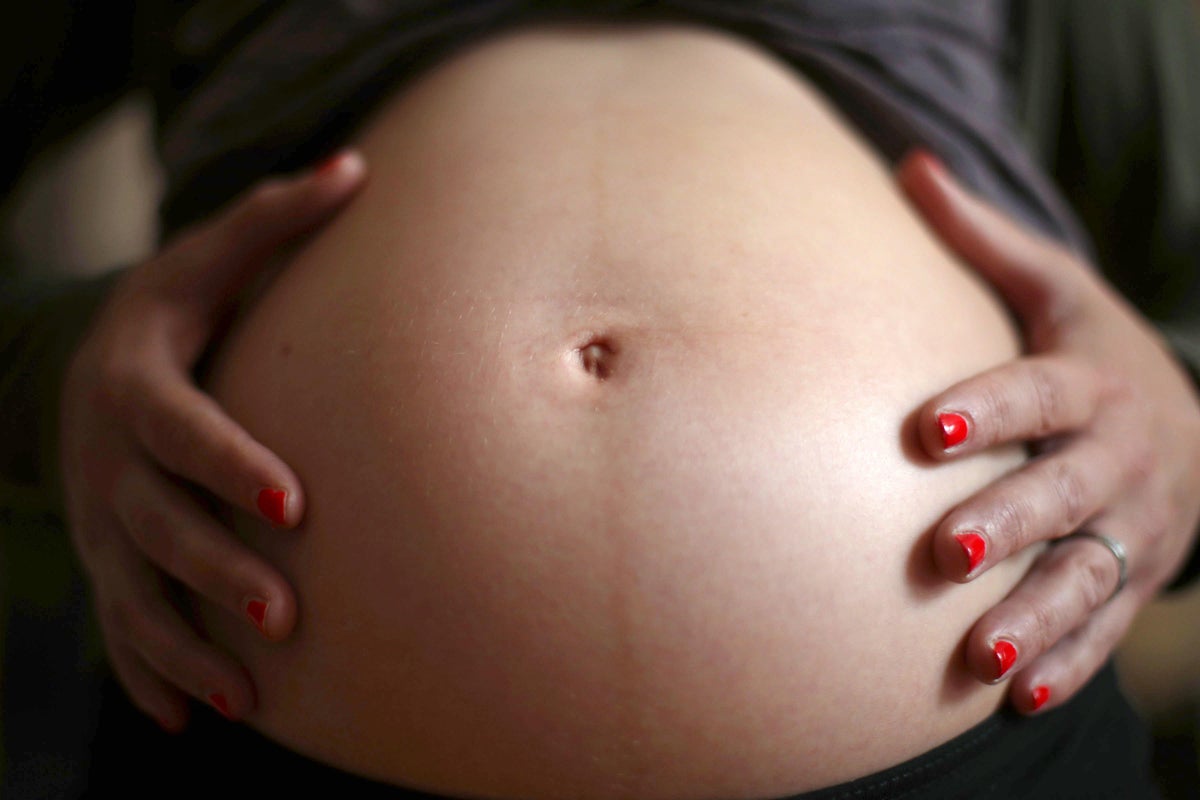
Mothers-to-be who follow a Mediterranean-style diet are more than a quarter less likely to develop a potentially fatal pregnancy condition, according to a new study.
Scientists found that following the eating pattern, which consists mainly of fruit, vegetables, nuts, olive oil, whole grains and fish, reduces the risk of pre-eclampsia by 28 per cent.
The positive impact was particularly noticeable among older mothers aged 35 or more, according to the findings.
Researchers from the Smidt Heart Institute at Cedars-Sinai Hospital in Los Angeles, California, discovered that women who conceived while adhering to the anti-inflammatory diet had a “significantly lower” risk of developing the potentially deadly complication.
Pre-eclampsia is characterised by severe high blood pressure and liver or kidney damage.
It is a major cause of complications and death for the mother and her unborn child. It also doubles a woman’s risk of heart diseases - such as high blood pressure, heart attack, stroke or heart failure - later in life.
The condition affects up to one in 14 pregnant women, including celebrities such as Kim Kardashian, Mariah Carey and Sophie Ellis Bextor.
Found in around 42,000 pregnancies a year in the UK (six per cent), pre-eclampsia reduces the flow of blood through the placenta, and can lead to stillbirth or even the death of the mother.
Children born to mothers with pre-eclampsia are also at higher risk of developing high blood pressure and heart disease.
While in many women the symptoms are mild, in some cases the condition becomes so severe the baby needs to be delivered prematurely.
The latest study, published in the journal JAMA Network Open, also evaluated the association between the Mediterranean diet and other adverse pregnancy outcomes, including gestational diabetes and hypertension, preterm birth, delivery of a small-for-gestational-age baby, and stillbirth.
Senior author Doctor Natalie Bello said: “This study validates that a healthier eating pattern is associated with a lower risk of adverse pregnancy outcomes, the most exciting being a 28 per cent lower risk for preeclampsia.
“Importantly, this connection between the Mediterranean diet and lower risk of adverse pregnancy outcomes was seen in a geographically, racially and ethnically diverse population.”
Dr Bello also noted that the link was stronger in women who are traditionally considered to be of advanced maternal age, those 35 or older.
In addition to preeclampsia, she said the risk of gestational diabetes also decreased in women who more closely followed the heart-healthy diet.
The study was part of the Nulliparous Pregnancy Outcomes Study: Monitoring Mothers-to-be, which enrolled over 10,000 women between 2010-2013. Of the women enrolled, 7,798 were included in the study.
Women who were pregnant with their first child were asked to complete a food frequency questionnaire during their first study visit, which occurred in the first trimester.
The questionnaire focused on the women’s eating habits during the three months prior to their visit and asked them to report their intake of common foods and drinks.
The answers were then categorised into the nine components of a Mediterranean diet - vegetables, fruits, nuts, whole grains, legumes, fish, monounsaturated-to-saturated fat ratio, red and processed meats, and alcohol - to calculate a Mediterranean diet score.
The findings showed that a high Mediterranean diet score was related to 21 per cent lower odds of having any adverse pregnancy outcome, as well as a 28 per cent lower risk of preeclampsia/eclampsia and a 37 per cent lower risk of gestational diabetes.
Dr Bello, director of Hypertension Research at the Smidt Heart Institute, said: “We also looked at the individual components of the Mediterranean diet and found higher intakes of vegetables, legumes and fish were related to lower associated risk of an adverse pregnancy outcome.”
Professor Christine Albert, chair of the Department of Cardiology who was not involved in the study, says that taken together, the findings show that adopting a Mediterranean diet pattern may represent an “important lifestyle approach” for the prevention of adverse pregnancy outcomes, particularly in women of advanced maternal age.
Previously, only three observational studies - each with only a “modest” number of participants - have investigated the association of adherence to this healthful diet pattern around the time of conception and risk of developing preeclampsia.
Prof Albert added: “These findings add to the growing body of evidence demonstrating that the Mediterranean-style diet may play an important role in preserving the health of women across the lifespan, including during pregnancy.”
Dr Bello says long-term studies are needed to assess whether promoting a Mediterranean-style diet around the time of conception and throughout pregnancy can prevent pregnancy complications and reduce future cardiovascular risk.







